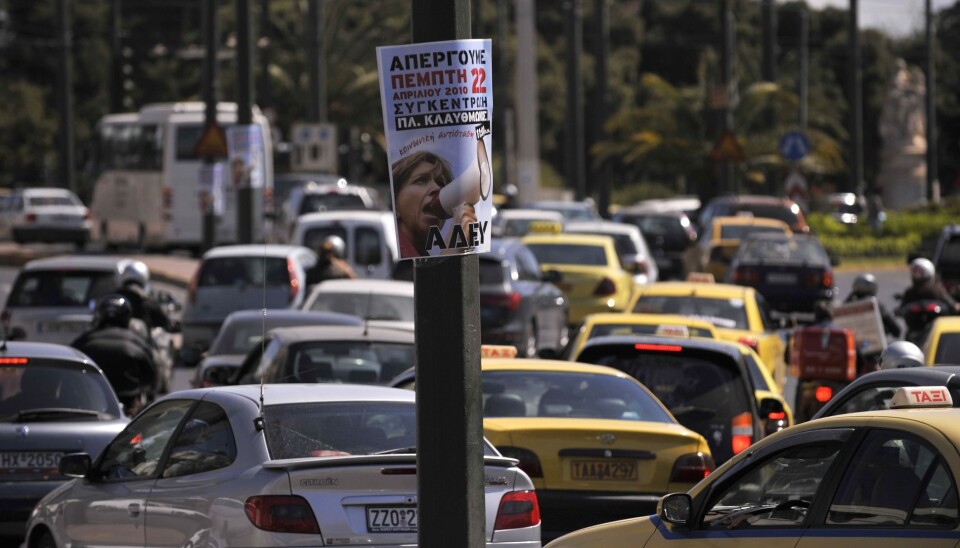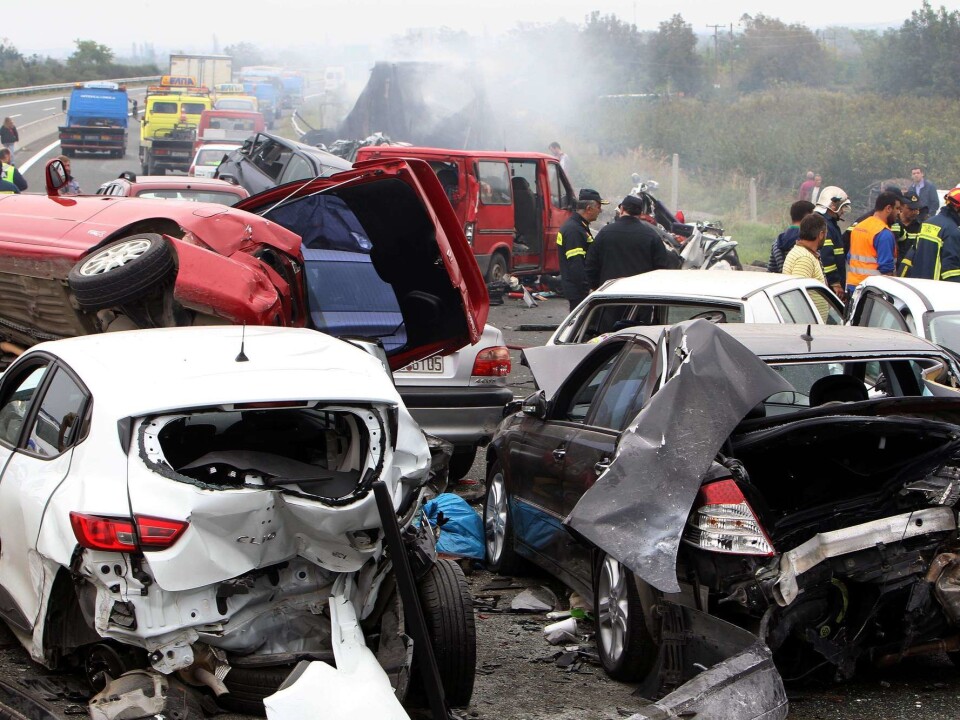
Why do Norway and Greece have radically different traffic mortality rates?
Social norms explain some of the dramatic difference.
Norway has the fewest traffic deaths of all countries in Europe.
Greece has one of the highest traffic mortality rates in the EU.
Researchers at Norway’s Institute of Transport Economics (TØI) and the National Technical University of Athens (NTUA) in Greece wondered if there was some explanation to be found in the traffic safety cultures of the two countries.
It turns out that yes, there is.
A difference in what is "normal"

The researchers talked to private and professional drivers in the two countries. Drivers were both interviewed and responded to questionnaires.
The difference in driving fatalities appears to be due to what drivers in the two countries perceive as "normal", the researchers concluded.
In short, what drivers think is expected of them affects how they behave in traffic.
Norwegian drivers are under mild social pressure that causes them to behave in certain ways in traffic. They drive politely and follow the rules — because they see other drivers drive politely and follow the rules.
The opposite is true in Greece.
Not surprisingly, the researchers who conducted the study also found a link between aggressive driving and how many accidents a driver is involved in.
Aggressive drivers in Greece
The most important differences between Norwegian and Greek road safety culture are related to higher rates of aggressive driving and less compliance in Greece.
Private drivers in Greece use words like "crazy", "careless", "mindless" and "unpredictable" about traffic in their own country.
More specifically, they described drivers who fail to stop at pedestrian crossings, have no respect for signs, and give people the finger, fight or talk on their phones while driving.
Norwegian drivers generally drive less aggressively, often use seat belts and are less likely to drive under the influence of alcohol than their Greek counterparts.
All the Greek private drivers the scientists interviewed described themselves as irritated or aggressive drivers.
Norwegian drivers did not.
Aggressive driving the exception
Norwegian drivers say they sometimes get annoyed or angry when they drive. But according to the researchers, this does not appear to be particularly widespread.
Norwegians are more likely to give in and roll their eyes when stuck in traffic.
If Norwegian drivers are asked to describe their image of an aggressive driver, they often describe young men between the ages of 30-40 who "just have to get somewhere" or people who live in Oslo.
But in Norway, aggressive driving is largely described as an exception.
Angry because of the financial crisis
The Greek professional drivers who participated in the survey believe that the financial crisis has negatively affected Greek driving culture by changing how people feel.
Professional drivers say that Greek drivers have become more tense, so that more people are likely to "explode" in traffic.
Paternalism not an explanation
One hypothesis the researchers explored was that Norwegian drivers are safer than Greek drivers because Norwegians are more accepting of a paternalistic culture.
In other words, perhaps Norwegians are more used to a government that limits individual freedoms, such as a “zero tolerance” policy to drinking and driving, to reduce overall risks.
But the researchers found the opposite. The study showed that Greeks are more open to paternalism and limits on their freedom than Norwegians.
Enforcement, driver training
The researchers concluded that national traffic safety culture is important in preventing traffic accidents.
But traffic safety culture is not the whole explanation for differences between countries.
Road quality, driver training and police enforcement also affect traffic safety.
The report also describes how bus drivers, truck drivers and other groups of professional drivers experience traffic in Norway and Greece.
-----------------------






























